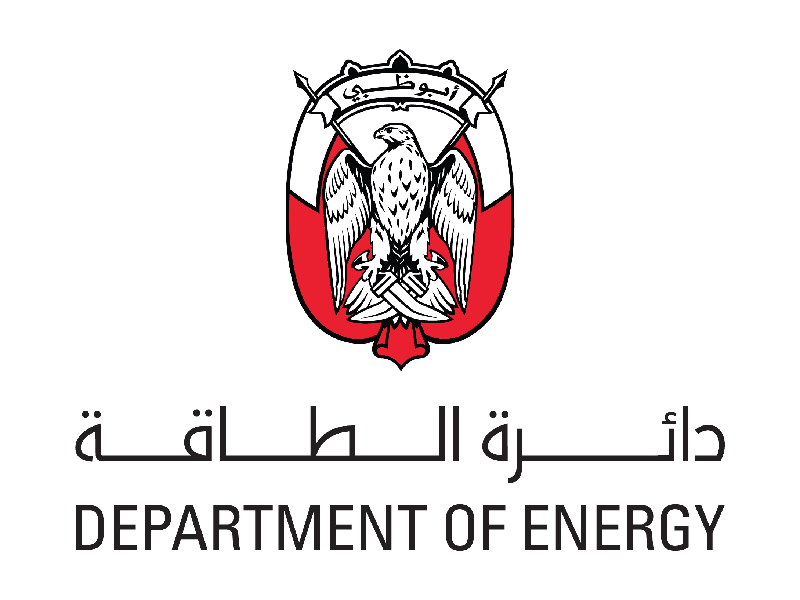
Eng. Awaidha Al Marar: The emirate’s energy infrastructure is resilient, and its security of supply is protected from immediate and long-term impacts
His Excellency Eng. Awaidha Murshed Al Marar, Chairman of the Abu Dhabi Department of Energy, commended the collective efforts across the energy sector in the emirate and the proactive cross-governmental collaboration guided by the UAE’s wise leadership to ensure people’s health, safety and wellbeing are always put first and to sustain our ability to provide our community and businesses across both the government and private sectors with the essential water and power resources they need.
Al Marar emphasized that critical services like water and electricity must remain reliable to enable all the other health, commercial, social, and supply chain sectors to go through the current situation and confirmed that the emirate is capable of safeguarding its energy infrastructures and ensuring continued supply of safe, reliable water, wastewater and electricity services in 2020 and beyond.
His Excellency said: “Energy has always been a critical component of Abu Dhabi’s socio-economic development and the quality of life, health and well-being of its people, and I would like to reassure the people of Abu Dhabi that the emirate has developed a highly efficient and sustainable energy system over the past decades which today, boasts one of the largest network infrastructures in the region with enormous generation, transmission and distribution capacity.”
“Abu Dhabi has 75TWh power production capacity with over nine thousand kilometres of combined overhead and underground transmission lines and more than 70 thousand kilometres of distribution lines. In the water sector, we have great capacity and infrastructure to ensure security of supply. These include a total water production capacity of 960 MIGD with a daily production average of 732 MIGD, a 3,601 km-long transmission network with 52 pumping stations and 126 reservoirs, and a 13,952km-long distribution network with 43 pumping stations and 99 reservoirs. We have the world’s largest reserve of 26 Mm3 of high-quality desalinated water, sufficient to store 5.6 billion gallons of water.
“Moreover, Abu Dhabi has 39 sewage treatment plants with 1,298 MI installed capacity, which are operating to the highest global health, safety and environment standards. Abu Dhabi’s new Strategic Tunnel Enhancement Program (STEP) designed to collect and treat wastewater discharged from residential, commercial and industrial buildings has the capacity to handle about 441,000m3 of raw wastewater flow per day.
“Our emirate’s energy infrastructure is resilient, and our security of supply is protected from immediate and long-term impacts. Importantly, we are well prepared, and we have solid and tested contingency planning in place to ensure continued operation and provision of the critical water, electricity and wastewater services to all sectors including residential, commercial, and industrial,” His Excellency explained.
The DoE Chairman added: “As the regulator of the energy sector in Abu Dhabi, our top priority is to make sure the power grid and water as well as wastewater networks are resilient and working. With the current global situation, we have been taking all necessary proactive steps in line with directives from the relevant local authorities to protect the health and safety of our employees across the sector, our stakeholders, our customers and our community. DoE and all the sector operating companies are equipped to work remotely, as needed, to maintain business continuity and ensure system reliability, continued operation and security of supplies. If anything, the current situation has been an opportunity to demonstrate our digital capabilities in running operational applications and customer service functions remotely.
“In addition, we are looking at the possible change in power and water demand from commercial sectors as more businesses move to remote working, and the possible rise in consumption from the residential sector with schools and offices closed and people spending most of their time at home. While we monitor loads and consumption closely, we are confident of our operators’ capability to handle shifts in water and power demand which is not very different from the normal load demand shifts between weekdays and weekends. We are always prepared to adopt to load demand shifts while maintaining system reliability.
“We are also monitoring the impact of the current situation on global economies, energy prices be it oil or renewable energy sources, and the availability of imported products and equipment essential to continuing our solar and nuclear projects.
“In consistence with the preventive measures applied globally for large group meetings and gatherings, a meeting on 18 March to open the final bids for developing the 1.5 GW solar PV plant in Al Dhafra region has been postponed. Bidders will be notified of the new meeting schedule accordingly.”
His Excellency concluded: “We are well positioned to withstand challenges and this is thanks to the proactive intervention of our wise Leadership and the digital capacity across the Government sectors which ensures business continuity and sustained services for all.”
